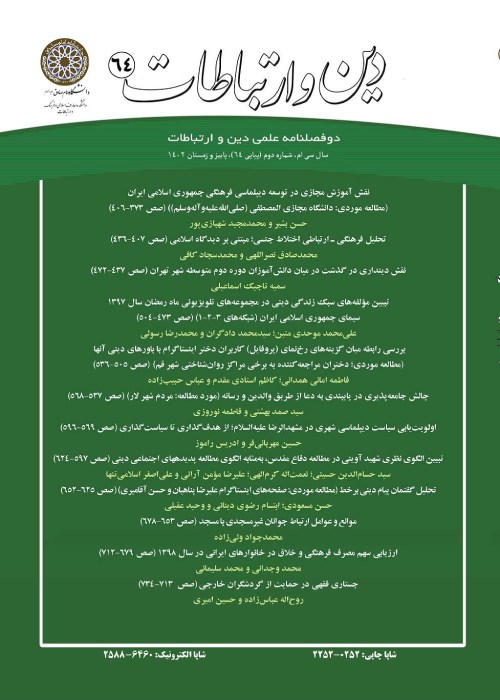Representation of the Research on Abrahamic Religions in the Twenty-first Century in social media
The present study aims to visualize the research articles on monotheistic/Abrahamic religions, including Islam, Judaism, and Christianity, to identify and picture the subjects addressed in religious studies in the 21st century.
This is applied research adopting a scientometrics approach in doing co-word analysis. The research population consists of all WoS-indexed articles on monotheistic religions published in the 21st century.
The results revealed four subject clusters of Islamic studies, including Islamic traditions and thoughts, Islamophobia, business and financial affairs in Islam, and Islamic countries. The research on Christianity appeared to focus on Christianity connections with other religions, including Judaism and Islam, and Christian thoughts and beliefs. The research on Judaism clustered was around the Jewish population, the role of women and family, and the connection of Judaism with Christianity and the Holocaust. It seems that interfaith interactions and beliefs are a shared research interest in monotheistic religion studies. While a cluster of Islamic studies focuses on Islamophobia, war, and terrorism, the natural face of Islam is not accurately represented in social media. In this regard, Islamic studies received more traditional and social citations. Findings showed that out of 27143 indexed articles related to Islamic research on the WoS, 4829 articles were reflected in 16 social media. The results also showed that the most active Twitter, Facebook, news media, and policy documents are USA, England, and Australia. Among the Islamic nations, Indonesians are the most active users of social media. Iran ranks eighth in terms of the number of articles. The altmetric scores of the most cited Iranian and non-Iranian articles were 768 and 73, respectively. The subject of the former was Islamophobia, and the latter addressed fasting in Islam.
The significance of the study lies in the insights it provides for religious and research policymakers to use the context of social media, rather than filtering them, in promoting the subjects addressed in the research articles.
- حق عضویت دریافتی صرف حمایت از نشریات عضو و نگهداری، تکمیل و توسعه مگیران میشود.
- پرداخت حق اشتراک و دانلود مقالات اجازه بازنشر آن در سایر رسانههای چاپی و دیجیتال را به کاربر نمیدهد.




